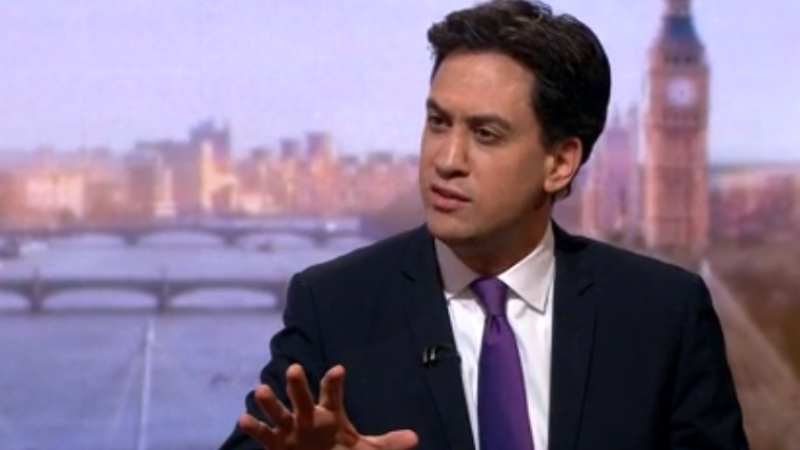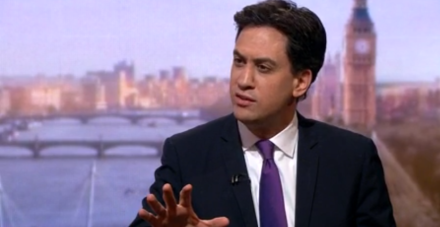
Judge people by their enemies. Who is most upset at the thought of Ed Miliband becoming prime minister after May 7? A few energy companies, perhaps, not looking forward to having their price structures scrutinised. Train operating companies, recognising that their tax-payer subsidised profit-making may be coming to an end. Some hedge fund bosses, for obvious reasons. A few media barons, ditto. The people who are attacking the Labour leader most aggressively are those who cannot face what a Labour victory would mean: a challenge to some powerful vested interests.

Media groups have been attacking each other over the past few days, but their jittery state betrays a deeper unease about their very existence. Not only is their commercial viability in doubt but so too is their continued relevance. What if the press ran a character assassination programme but still couldn’t influence the result of a general election? What would that say about the impact and credibility of certain newspapers?
It never really was true, of course, that the Sun “won it” for the Conservatives in 1992 . But the mythology has endured. The relentlessness of today’s anti Ed coverage, which even Nigel Farage says is unfair, reveals how anxious some are about Labour’s ability to ride out the distorted reporting and still win power. The polls show the two main parties roughly neck and neck. It may be that these numbers represent a core vote on either side that is more or less unbudgeable, up or down.
If that is the case then something quite serious is possibly going on: not so much the first internet election, but the first (to use an internet expression) “meh” election. Why haven’t better GDP and jobs figures boosted Tory levels of support? Meh. Why hasn’t a persuasive argument about a “squeezed middle” and the “cost of living crisis” helped Labour to a substantial lead? Meh. Maybe people just aren’t really listening. The considered response to what sounds to many like blah blah politics is…meh.
Normal people are in any case not paying much attention to political arguments – perhaps for only four minutes a week, according to Jim Messina, the US Democrat turned Tory strategist. There are still two and half months to go to polling day, and only the so-called “short campaign” will get people thinking.
Either of the two main parties could yet discover new arguments or find a new voice with which to win voters round. But in truth it is events beyond the immediate control of politicians that have had the biggest impact in recent weeks: a halving of the oil price, a supermarket price war and now continued scandal at HSBC, threatening to expose a culture of tax avoidance in British financial circles that goes deeper than most realised. The first two of these developments have prevented Labour from building on a slight lead, while the final one threatens to tarnish the Conservatives as being (knowingly or not) complicit in widespread and damaging tax avoidance.
In these circumstances Labour has little to lose by speaking up louder and clearer for the underdogs in society, for those who are losing and are being left behind, for those who do not recognise or experience any economic recovery at all. Job creation has not won the Tories more support because people can see what sort of jobs these are. In truth we have reached the point predicted over 30 years ago by the then chancellor of the exchequer, Nigel Lawson, when he envisaged an economy in which there would be more jobs in labour-intensive service industries that were “not so much low-tech as no-tech”. Neil Kinnock described that vision at the time as a “shoe-shine economy”, and he was not wrong. It is where we are today: low productivity, low pay, with not enough high value-adding jobs being created.
The British love an underdog, it is said, and it was this factor, and not just noisy and hostile press coverage of Labour, that helped John Major to his victory in 1992. Ed Miliband is the underdog in 2015: attacked by some very rich and powerful people who fear the change he might bring about. These are, I think, good enemies to have. On May 7 the people will speak, and they may choose to speak up for the powerless many and not the powerful few.




More from LabourList
‘Hope starts young: Why Labour must tell the story of a better tomorrow’
LGBT+ Labour suspends AGM amid fears of legal action over trans candidates running for women’s roles
‘Hyperlocal messaging can help Labour win elections: Here’s how’